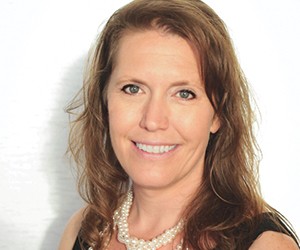When it comes to experience working in the meetings industry, it’s hard to beat the breadth of knowledge earned by Southern California’s Larissa J. Schultz, who owns the independent meeting planning company LJS Meeting Strategies, is a speaker and adjunct professor at Glendale College, and is even an author.
Besides taking on meeting planning work for clients that have included ING Advisors Network, the California Association of Realtors and the Academy of Country Music, Schultz has found the time to publish TSA and Me: A Light-hearted Look at Travel Today, as well as two training guidebooks detailing the basics of meeting planning.
A lot has changed in the 17-plus years Schultz has been in the meetings industry, mostly pertaining to an increasing amount of professionalism and the suite of project-management skills needed to perform the job.
“I think we have done a good job in becoming more strategic in our thought processes—becoming more viable,” she says. “We’ve created more processes and systems—more universal ways of doing things, which presents us more as professionals.”
Schultz started out as a travel manager and moved over to the meetings world when she took a job planning for an association, which led to a planning position for a major financial organization. Roughly six years ago she took to a leap of faith and branched out to get away from the monotony of planning essentially the same types of meetings every year.
“I’ve been blessed that I’ve been able to pick and choose clients that I want to worth with,” she says. “It’s not just paying the bills, but a passion for what organizations do. I call it ‘purposeful planning.’
“Clients choose us, but when you look at it on a more holistic level, we should choose them,” she continues. “It should be enjoyable for both parties.”
In her job as an adjunct professor in the Hospitality and Tourism program at Glendale College, instructing on subjects that include catering and banquet services and event management, Schultz has noticed her students becoming more selective, too. Maybe, in a general sense, it’s a quality exhibited by Millennials, but Schultz sees her students being a bit more choosy when it comes to employment opportunities.
“I don’t know if it’s the generation as a whole, but they seem more particular about who they’re going to work for and the type of work,” she says, “as opposed to when I got into the industry—it was ‘get a job.’”
Many of her students are happy with earning a two-year degree, as opposed to four-year, before entering the workforce.
Schultz also recently concluded a term as president of the Southern California Chapter of MPI, and through that leadership role solidified her opinion that collaboration and organization are the keys to increasing the clout of the meeting planning profession.
“We’re now talking as the industry as a whole. There’s more power working together with groups such as the U.S. Travel Association,” she says. “If we can get on the same page with our communication and messaging, I think it will be better for all of us.”







